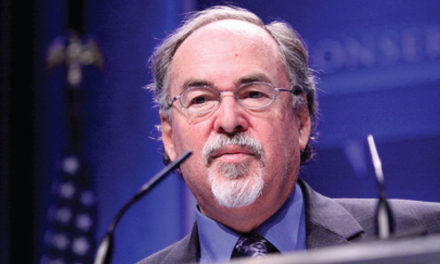The holiday season can be a confusing time for Muslim children. Many of them are in public school, where classrooms are decorated with Christmas, Hanukkah, and/or Kwanzaa décor, and they may be hearing some buzz about Santa Claus “coming to town” from their friends and classmates. Some may even have Christian relatives who celebrate and buy them gifts around this time. Others are intrigued by the captivating lights, sounds, and smells invading their senses. The “Christmas spirit” is everywhere, from shopping centers to public buildings, and even as close to us as our next-door neighbor’s front lawn. Curious children are bound to ask questions, and we must be prepared to answer them with caution, care, compassion, and respect for our non-Muslim neighbors.
Christmas is by far the most widely celebrated holiday in the Western world, but the holiday season encompasses many celebrations. These include Thanksgiving, Christmas Eve, Christmas Day, Kwanzaa, and New Year’s Eve. Three Kings Day is also widely celebrated in Latin America, Europe, and the Caribbean, and people who practice Catholicism and Christianity from these regions may consider it to be part of the holiday season, as well. The holidays occur almost back-to-back from the end of November until the beginning of January. Out of all these popular winter celebrations, Christmas seems at the top of the list due to its highly commercialized and recognizable symbols like the Christmas tree, Santa Claus, and nativity scenes depicting the birth of Jesus.
When your child asks about the holidays, more than likely he or she will want to know about the origins and purpose of Christmas. Here are some of the questions you may encounter and some information that can help you provide the best answer for your child:
1. What is Christmas about?
There is a lot to say about Christmas, so we will summarize some of the most basic points. The word Christmas is a compound word, or a combination of the words “Christ’s mass.” Mass is the name of the church service, which is according to Britannica.com the central act of worship of the Roman Catholic Church. However, most Christians use the word Christmas to refer to the celebration of the birth of Jesus. The birth of Jesus Christ, the son of Mary, peace be upon him, is celebrated on the 25th of December, hence the name Christ’s mass. However, there is no evidence to prove that Jesus was actually born on this day.
Christians did not always celebrate the birth of Jesus. This tradition began in Rome in the 4th century, but it did not become a major Christian festival until the 9th century. Historically, it was also called the “Feast of the Nativity” – nativity meaning birth. It may also be referred to as Xmas. Christmas Eve is the night before Christmas, and it is spent in anticipation of the symbolic birth of Christ. People, including some non-Christians, celebrate Christmas like Muslims celebrate the two Eid festivals, by decorating their homes, spending time with family, exchanging gifts, and attending religious services. There are other cultural traditions like erecting a Christmas tree and believing in Santa Claus, but these have no Christian religious basis or ties to the birth of Jesus, peace be upon him. In the U.S., December 25 or Christmas Day has been considered a federal holiday since 1870.
2. If Muslims believe in Jesus, then why don’t we celebrate Christmas?
This is a fair question that we may also hear from friends or coworkers. The two most popular religions in the world today, Islam and Christianity, both recognize and respect Jesus, the son of Mary, peace be upon him, as an important figure. Muslims admire him as a prophet and messenger of Allah. Most Christians take it a step further, regarding Jesus as the son of God, part of a Trinity – three parts of a Godhead: Father, Son, Holy Spirit, – or as God, Himself.
The biggest difference between Muslims and Christians with regards to Jesus is that, as Muslims, we worship Allah alone and associate no partners with Him – He Alone is our Creator and Sustainer – and He has no offspring, nor was He born (See Surah A-Iklas, 112:1-4). We believe in Jesus as a noble servant of Allah and one of His greatest messengers. In the Quran, Allah tells the story of the life of his mother, a pious virgin named Mary, his miraculous conception (he was created without a father), and what transpired after his birth. He summarizes everything in the chapter that bears the name of Mary, Surah Maryam. Allah says that when Jesus was born, he was given the miracle of speaking from the cradle. He addressed the people, proclaiming:
“[Jesus] said, ‘Indeed, I am the servant of Allah. He has given me the Scripture and made me a prophet. And He has made me blessed wherever I am and has enjoined upon me prayer and zakah as long as I remain alive; And [made me] dutiful to my mother, and He has not made me a wretched tyrant. And peace is on me the day I was born and the day I will die and the day I am raised alive.’”
(Surah Maryam, 19:30-33)
Allah continues, explaining the Islamic belief about Jesus:
“That is Jesus, the son of Mary – the word of truth about which they are in dispute. It is not [befitting] for Allah to take a son; exalted is He! When He decrees an affair, He only says to it, ‘Be,’ and it is. [Jesus said], ‘And indeed, Allah is my Lord and your Lord, so worship Him. That is a straight path.’ Then the factions differed [concerning Jesus] from among them, so woe to those who disbelieved – from the scene of a tremendous Day.”
(Surah Maryam, 19:34-37)
Here are some other quick facts about Jesus, peace be upon him, in Islam:
- He is loved and respected by hundreds of millions of Muslims around the world.
- His miracles and his mission are forever preserved in the Quran.
- According to Islamic tradition and contrary to Christian teachings Jesus was not crucified, but raised to heaven.
- Muslims believe Jesus will return to Earth before the Day of Judgement and kill the Antichrist or Al-Massih Ad-Dajjal (The False Messiah).
- The name of Jesus (Isa) is mentioned more than 25 times in the Quran. That is more than even the Prophet Muhammad, peace and blessings be upon him, the last and final messenger of Allah and the Seal of Prophethood.
- A Muslim who does not believe in Jesus as a servant and messenger of God or in his miraculous birth is not considered a believer.
Despite all these wonderful things, Muslims do not partake in Christmas because it is not part of our religious tradition. Anas ibn Malik reported that the Prophet Muhammad, peace and blessings be upon him, arrived in Madina during two days in which they were celebrating. The Prophet asked:
“‘What are these two days?’” They said, “‘We would celebrate these two days in the time of ignorance.’” The Prophet said: ‘Verily, Allah has replaced these two days with two better days: Eid al-Adha and Eid al-Fitr.’”
(Abu Dawud)
3. What can we learn about these celebrations from the Sunnah?
The Prophet, peace and blessings be upon him, had a great love and admiration for Jesus, peace be upon him. Abu Huraira reported that he once said:
“‘I am the closest of the people to Jesus the son of Mary in this life and in the Hereafter.’ It was said, ‘How is that O Messenger of Allah?’ The Prophet said, ‘The prophets are like brothers from one father with different mothers. They have one religion and there was no other prophet between us.’”
(Muslim)
Nevertheless, there is no indication in the Quran or the Sunnah that the Prophet, peace and blessings be upon him, or his companions celebrated the birth of Jesus, peace be upon him. In fact, he discouraged his followers from being extreme in their admiration for him, so they would not go astray like the followers of Jesus had done. He said:
“Do not exaggerate my status as the Christians have done with the son of Mary. Verily, I am only a servant, so refer to me as the servant of Allah and His Messenger.”
(Bukhari)
Additionally, since there is no knowledge of exactly when Jesus, peace be upon him, was born, then there would have been no way of determining what day to celebrate his birth. Historians also argue that the reason Romans chose the 25th of December to celebrate the birth of Jesus was to align with pagan rituals surrounding the winter solstice.
Read more about December 25 in this article: History of Christmas – Origins, Traditions & Facts.
It is better to be safe than sorry. The Prophet Muhammad, peace and blessings be upon, said.
“The lawful is clear and the unlawful is clear, and between the two of them are doubtful matters about which many people do not know. Thus, he who avoids doubtful matters clears himself in regard to his religion and his honor….”
(Bukhari, Muslim)
Undoubtedly, Muslims should avoid anything that compromises their beliefs and following rituals and holidays that are not part of our legislated traditions is best avoided.
4. Who is Santa Claus and what does he have to do with Jesus?
The lyrics of a popular Christmas reference Santa Claus this way: “He knows when you are sleeping. He knows when you’re awake. He knows if you’ve been bad or good, so be good for goodness’ sake.”
As Muslims, we know that there is only One All-Knowing, All-Seeing, and All-Powerful Supreme Being, and that is Allah, may He be glorified and Exalted. These lyrics, however, are speaking about a jolly, chubby old man named Santa Claus – an iconic figure of the Christmas season. In popular culture, we recognize Santa as a bearded elder dressed in a red suit who flies through the skies with a sled led by magical reindeer to deliver gifts to children all over the world (somehow in one night). He lives in the North Pole, in shopping malls across America, and in the innocent minds of young children who believe this supernatural person brings them presents every year. Eventually, they outgrow their belief in Santa, but many still pass on this superstition to their own children.
There is no connection between Santa Claus and Jesus, peace be upon him, other than the possibility that the original Saint Nicolas (Santa Claus) may have been an early follower of Christ. According to History.com, “It is believed that Nicholas was born sometime around A.D. 280 in Patara, near Myra in modern-day Turkey. Much admired for his piety and kindness, St. Nicholas became the subject of many legends.”
Read more about Santa Claus: Real Origins & Legend – HISTORY.
The use of the image of Santa Claus began as a marketing gimmick for department stores to lure Christmas shoppers in the 19th century. Use of Santa was made popular in magazines, television, and film, and gradually developed into the commercial symbol that it is today. Your Muslim child may tell you that his/her classmates, friends, or younger relatives believe in Santa Claus. Gently explain to them that this is part of their tradition, even though it has nothing to do with Jesus, peace be upon him. Although they may find it silly, they should be respectful when approaching the subject with their friends and family or simply stay silent. However, if someone tries to convince them about the existence of Santa Claus or any other fictitious figure, they should be confident enough to state their beliefs – “I’m a Muslim and I do not celebrate Christmas or believe in Santa Claus, but I do love Jesus, peace be upon him.” If anyone pressures them further, they should inform their parents, caregivers, or teachers right away.
5. Can we say Merry Christmas or Happy Holidays?
Dr. Main Khalid Al-Qudah, Muslim jurist of the Assembly of Muslim Jurists of America, was asked about whether Muslims should return the greetings of non-Muslims during the holidays. With regards to the New Year and Christmas, he responded, “(Saying) ‘Happy New Year’ is like (saying) ‘Good Morning’ or any other greeting people might use. It is not a part of the Christmas celebration…. There is nothing wrong with responding by saying ‘Happy New Year.’ It is not the case with ‘Merry Christmas,’ because this greeting relates to the religious occasion itself, and we, as Muslims, do not celebrate it, nor do we agree with celebrating it. So, if a Muslim is greeted (with) ‘Merry Christmas’… he could say: thank you (for example). If it is possible to explain to the other party why he does not believe in Christmas holiday, he should do so in a very kind and nice way….” (amjaonline.org, Fatwa ID 22577)
Children can adapt easily to these situations if they are taught how to respond properly beforehand. Let your child know that it is good manners to smile, be courteous, and return greetings. In the case that someone greets them with “Merry Christmas” or “Happy Holidays,” they can respond “Thank You” or “Have a Great Weekend” or “Enjoy your Day/Break.” This way, they do not have to compromise their beliefs and will stay true to their Muslim identity while still making the other person happy.
6. Is Jesus the reason for the season?
Christians may argue that “Jesus is the reason for the season.” This statement appears on billboards and signs outside of churches and community centers this time of the year. However, the holiday season is a mashup of different celebrations that are conveniently celebrated around the same period. The season has become so commercialized that many people are detached from the real meaning behind the rituals they are involved in.
As Muslims, we must know and own the story of Jesus, and his mother, Mary, peace be upon them, according to our tradition, so we can learn to separate it from the Christmas narrative. It is equally important that we teach our families to respect this festive time for our non-Muslim neighbors and friends, as we expect them to have respect for our Eid celebrations.
May Allah watch over and protect us and helps us to engage in activities to keep us in His good favor. Ameen.
Wendy Díaz is a Puerto Rican Muslim writer, award-winning poet, translator, and mother of six (ages ranging from infant to teen). She is the co-founder of Hablamos Islam, a non-profit organization that produces educational resources about Islam in Spanish (hablamosislam.org). She has written, illustrated, and published over a dozen children’s books and currently lives with her family in Maryland. Follow Wendy Díaz on social media @authorwendydiaz and @hablamosislam.
By Wendy Diaz














